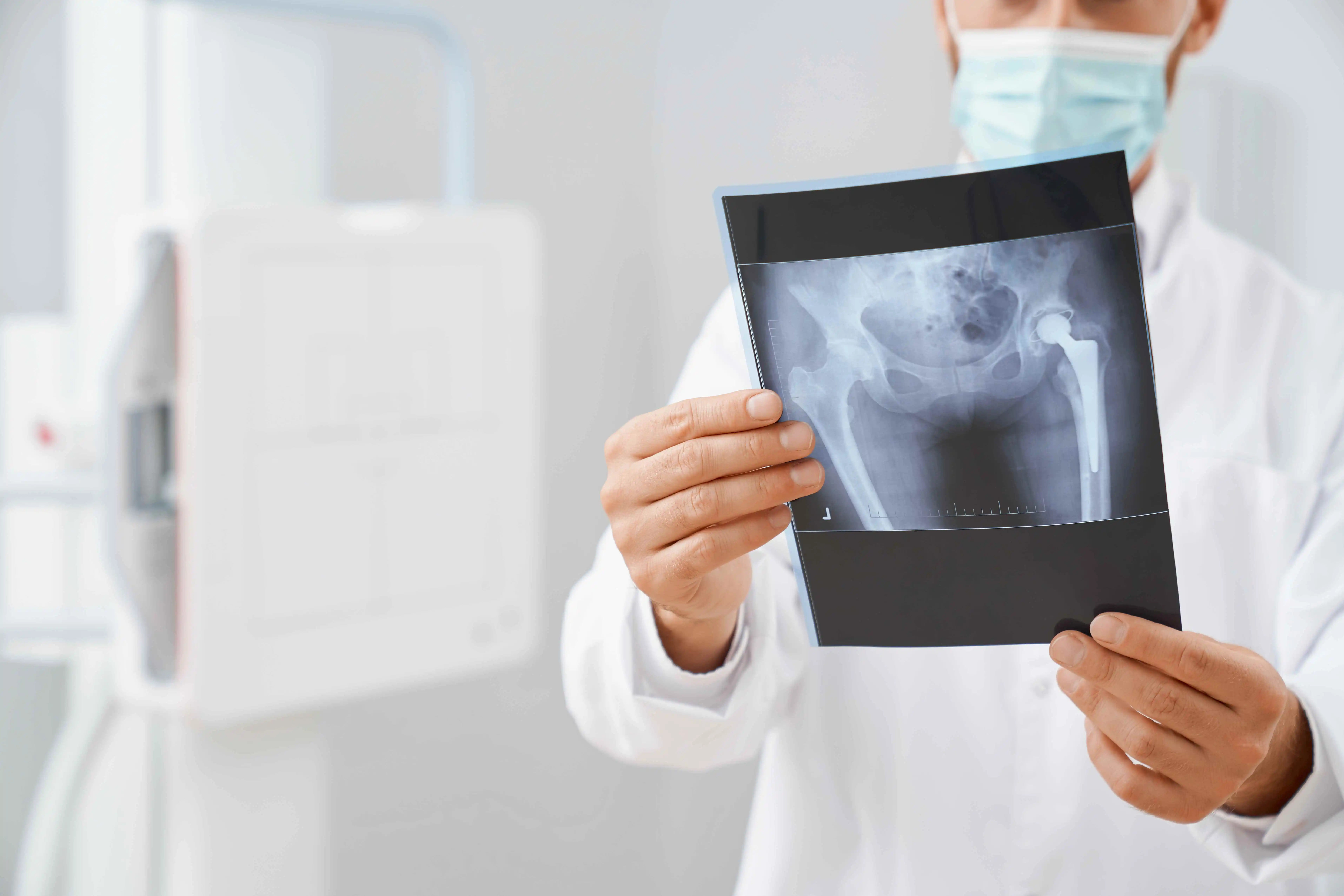Hip fractures often occur in elderly patients aged 65 and up. This is mainly attributed to their bones losing strength as they age and becoming more brittle. Even today, surgery is the most recommended treatment for a broken hip. However, in this article, we will be exploring the efficacy of non-surgical treatment for hip fracture.
While surgery is purported to be the most effective treatment for a broken hip, it takes a severe toll on the body, especially in elderly patients. That’s why more people are looking for non-surgical treatment for hip fractures that enable holistic healing without the added wear and tear of invasive surgery.
This is where many people turn to regenerative treatment backed by stem cell therapy that promotes self-healing from within. However, before we look into that, let’s see how a hip fracture occurs, its signs, symptoms, diagnosis, etc.
What Happens When a Hip Fracture Occurs: Breaking It Down for You
A hip joint is a ball and socket joint made up of the top of a femur or the ball and the lower part of the pelvis bone, i.e., socket. A hip fracture happens when any part of this structure cracks or breaks. This causes the bones to separate and can also lead to significant muscle tearing.
Hip fractures are most commonly caused by a fall, trauma to the side of the hip during an accident, or medical conditions like osteoporosis, repeated stress, thyroid problems, poor nutrition, cancer, etc.
Symptoms of a Hip Fracture
The signs of a hip fracture include:
- Pain, bruising, and swelling around the hip region.
- Pain in your hip, groin, or even in your thigh.
- Pain and trouble while walking on the affected side.
- Pain while rotating your hip in or out.
- If your leg appears to be turned rather than straight.
In the case of older people, they may suffer a nasty fall and find themselves unable to get up. Seniors living alone should have a medical alert system or button that helps them get emergency care in times of need.
Once you’re at the clinic or hospital, your doctor will conduct an initial examination and order a few tests.
How is a Hip Fracture Diagnosed?
- Your doctor will ask questions about your symptoms during the examination and look at any material sent over by your referring physician.
- They will then order X-rays to determine the size and location of the fracture. They may even prescribe a CT Scan, MRI, or bone scan if the X-rays aren’t clear enough.
A hip fracture, if improperly treated, can severely impact one’s quality of life, as many people who get hip fractures cannot regain their mobility. The ability to recover from a hip fracture depends on age, bone density, and severity of the break(s).
Surgical Treatment for Hip Fracture
In case of a hip fracture with several breakages, there’s no option but to get surgery to restore the hip joint and regain mobility post-surgery. There are many different types of surgeries that are used to fix a broken hip. The type of surgery chosen to set a specific case depends on the extent of the break, as shown in the X-rays.
The surgeon may use metal screws, plates, or even a rod to fix a broken hip. They may also recommend a partial or total hip replacement in severe damage.
Let’s now look at how non-surgical treatment for hip fractures can help restore your mobility and quality of life.
Non-Surgical Treatment for Hip Fracture
When ascertaining the benefits of stem cell therapy for treating hip problems, recent advances in regenerative medicine at the Yale School of Medicine are all set to render 10% of hip replacements unnecessary.
An injured hip can often continue to cause pain despite surgery, rest, cold compress application, and physical therapy. In such situations, regenerative stem cell therapy is your best bet against a future filled with regular flare-ups and mobility issues.
Stem cell-based nonsurgical treatments can be used to provide pain relief and tissue regeneration for a variety of hip-related conditions, including:
- Arthritis
- Bone deterioration
- Ligament repair
- Tendon regeneration
- Hip fractures
At Regenerative Masters, we recognize that bones comprise active, living tissues that create augmented lines of strength in response to stress. However, if the pressure is too severe, the bone is broken down faster than it can be rebuilt.
In some instances, fractures can be unable to heal due to nerve damage or inadequate blood supply. In such cases, bone stimulators and differential loading can be tried to facilitate recovery.
If even these methods are unsuccessful, you may need surgery to fuse the fracture back together and stabilize the bone.
Dr. Hanson, at Regenerative Masters, is one of the few physicians with the experience to carry out these procedures. He uses bone acquired from the patient and employs healing cell concentrates that help the body heal these areas naturally.
Non-Surgical Treatment for Hip Fracture and Bone Degeneration
Bone degeneration occurs quite frequently in the ball side of the hip joint. Platelet-Rich Plasma Therapy and Bone Marrow Cellular Concentrate are the most common agents used to treat this type of bone deterioration.
On average, a patient seeking treatment for bone deterioration will receive 1-3 injections over a three to six-month period. This should ideally provide relief for two or more years. Depending on the severity of the deterioration at the beginning of treatment and the type of regenerative treatment used.
Are You Suffering from Severe Hip Pain? You May be a Viable Candidate for Stem Cell Therapy. Call Us To Find Out More!

At Regenerative Masters, our mission is to heal people and help them live healthy and thriving lives. We used the latest advancements in stem cell technology to create regenerative treatments that channel your body’s natural ability to heal and repair itself.
Our holistic treatments are customized to provide our patients with superior results and give a new meaning to personalized healthcare.
If you have more questions about our treatment methodologies and how we can help you lead a pain-free life, call us at (612) 800-5096 or contact us on our website.

